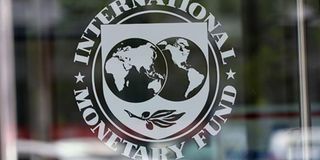IMF cautions government on role of central bank

IMF cautions government on role of central bank
What you need to know:
The major function of the central bank is to issue currency notes.
KAMPALA. As the Bank of Uganda (BoU) celebrates 50 years of existence, the International Monetary Fund (IMF) has cautioned Ugandan policy makers to avoid giving conflicting roles to the Central Bank with policy aspects which do not fall under its core functions in economic management.
In a developing economy, the Central Bank performs both traditional and non-traditional functions.
The principal traditional functions performed are the monopoly of currency note issue, banker to the government, bankers’ bank, lender of the last resort, controller of credit and maintaining low inflation/stable exchange rate.
All these functions are related to the foremost function of helping in the economic development of the country.
In the recent BoU Golden Jubilee Panel debate on “The Role of the Central Bank in a market oriented economy” held at President’s office recently, Dr Axel Schimmelpfinneg, the senior resident representative of IMF in South Africa, and IMF Mission chief for Uganda, said the role of the central bank is maintaining macroeconomic stability and regulation of the financial system.
“We need to be careful here in giving the conflicting roles, one or two to the central bank. The central bank has successfully provided conducive environment for high economic growth over the years,” he said.
Mr Schimmelpfinneg explained that finding the policy mix is good for Uganda’s economic development, saying the country needs policy mix in education, health and governance.
A market oriented economy is an economic system in which economic decisions and the pricing of goods and services are guided solely by the aggregate interactions of a country’s citizens and businesses and there is little government intervention or central planning. Uganda is a market oriented economy.
Asked whether he is convinced by people calling for the change in the role of central bank in Uganda, Mr Schimmelpfinneg said: “I am not convinced that we should change the role of the central bank. Its role is clearly macroeconomic stability and regulation of financial system. It cannot go and begin regulating shops.”
Dr Adam Elhiraika, the director macroeconomic policy division at United Nations Economic Commission for Africa, had suggested that the central bank should be using foreign exchange reserve it controls for financing other things in the country.
Speaking at the same function, the deputy governor BoU, Dr Louis Kasekende, said: “We commemorate this Golden Jubilee at a time when Uganda has resolved to attain middle income status as contained in Uganda Vision 2040. With this aspiration in mind, it is clear that macroeconomic policy is unlikely to be business as usual going forward.”




